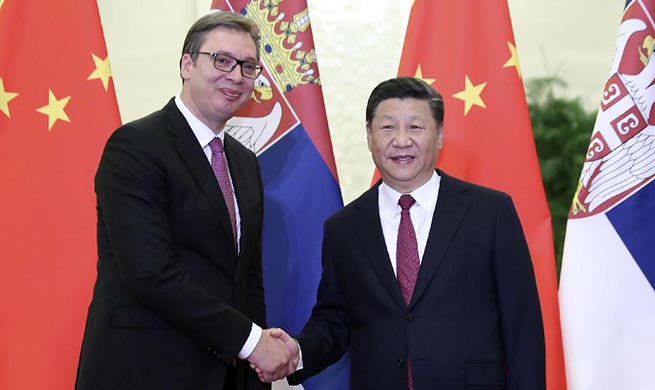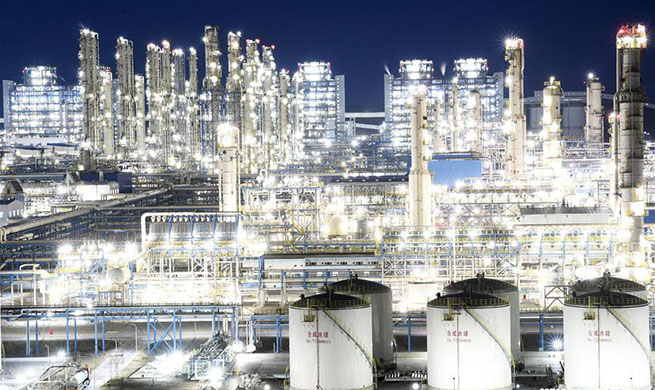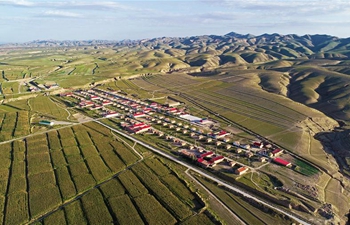SHANGHAI, Sept. 19 (Xinhua) -- First owning an office in Shanghai's Pudong in 2004, Australian machine tool manufacturer ANCA now has its biggest sales office in the city.
"The last 10 years have been fantastic for ANCA in China, and we are hoping that the next five years will be as good as the last five years," said Jeffrey Foregard, general manager of the company's Asian operations.
Over the last five years, the company's sales in China have grown more than 30 percent yea-on-year on the back of strong smartphone business.
Thanks to the huge market, brisk growth in China and favorable policies in Pudong, multinational companies have encountered similar wealth stories in Pudong, the frontline of reform and opening-up.
"The fast economic growth and constantly improving policy environment in the past decades offered unprecedented opportunities for multinationals," said Hong Chow, general manager of Roche Pharmaceuticals China.
At constant prices, China's GDP rose 33.5 times from 1978 to 2017, with average annual growth of 9.5 percent, much higher than the world average of about 2.9 percent during the same period.
Roche set up its pharmaceutical plant in Shanghai in 1994, as one of the first foreign-invested companies to enter the Zhangjiang High-Tech Park in Pudong.
In the past 24 years, the company has built a complete value chain from R&D, production to sales, in recognition of the weight and growth prospects of the Chinese market.
"Roche's diagnostics and pharmaceuticals businesses will jointly showcase their scientific breakthroughs... demonstrating the important position of the Chinese market in Roche's global strategy," Chow said.
The importance of China for Roche is mainly due to the country's huge market potential, sound business environment and attraction for professionals.
China has become the world's second largest medicine market, with continuously rising demand from patients, Chow said.
"Meanwhile, Shanghai has always been willing to listen to the voices of companies with an open attitude, and has thus made policies dovetailing with companies' actual needs, especially after the setup of the free trade zone (FTZ)," she said.
In 2013, the country's first pilot FTZ was established in the Pudong New Area, and expanded to a larger area in Pudong in 2015.
"Preferential policies in the FTZ, including the negative list for foreign investment and the cross-border renminbi capital pool policy, effectively boosted the development of the company," Chow said.
The Shanghai FTZ published the country's first negative list with items that were off-limits for foreign investment, which has been rolled out across the country. The area also spearheaded the country's efforts in streamlining business registration, as well as speeding up customs clearance and corporate supervision. So far, more than 100 categories of institutional innovation have been duplicated in other parts of the country.
"The benefits of being in the FTZ are very clear," Foregard said, citing the ease of importing spare parts and accessories, tax preferences and good infrastructure in Pudong.
At present, Pudong New Area is home to 281 regional headquarters of multinational companies, accounting for 45 percent of Shanghai's total, according to local data.
"With the policy support in the Shanghai FTZ, more companies will surely come to Pudong," Foregard said. "Now, China accounts for about 15 percent in sales of ANCA worldwide. Today we have a much bigger facility, and each time we've grown, we almost doubled the size."
ANCA is planning to move a number of R&D staff into China in the next 12 months, employ local Chinese staff and set up a R&D center in the country.
"It is important that we support the Chinese economy, we have done very well in the last 10 years and now it is our turn to give something back," Foregard said.

















